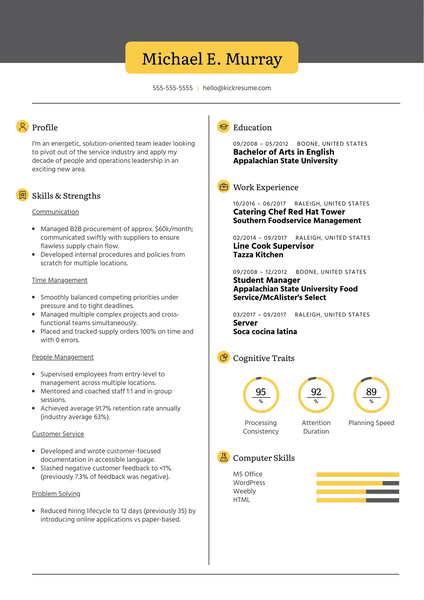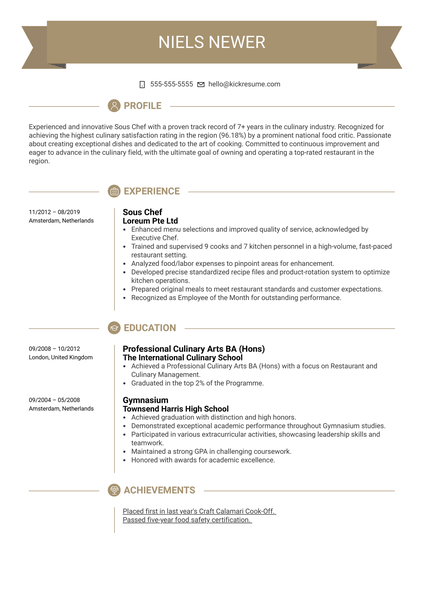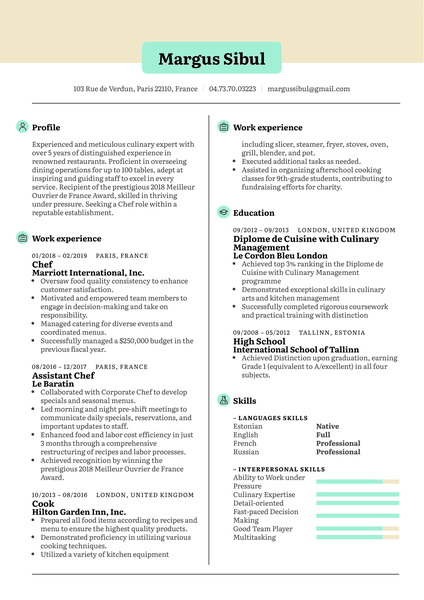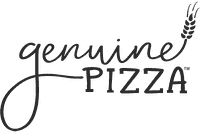How to write a perfect chef resume
Are you ready to cook up a quality resume? As a chef, you go through the process of selecting the finest ingredients to create tasty, flavorful dishes that customers are willing to line up for.
However, while you probably have all the necessary skills to get that chef’s job you’re applying for, it’s easy to get lost in the shuffle when hiring managers have dozens of other applicants looking to land the same job. Luckily, we’re here to help.
Read on to learn more about how to get that new position sooner rather than later with the perfect chef’s resume.
1. Write an eye-catching chef resume summary
As a chef, you likely know how the hiring process works and how it differs for each restaurant; however, it’s important to really consider what each section means for the hiring manager. Your resume summary is relatively self-explanatory; it’s the highlights of your resume summed up in a few sentences to catch the restaurant owner or hiring manager’s eye.
Why? Because most employers weed out resumes simply by looking at the summary until they’ve narrowed it down to a handful of qualified candidates.
How do you make your chef resume summary stand out? Look to follow the basic adjective/job title/experience formula.
So, for example, you could say something like “Energetic sous chef with 8 years of expertise in one of My City’s Hottest Restaurants.”
You’ll next want to include some of your accomplishments or stats that will set you apart. For instance, if you worked for a Michelin star chef, now is the perfect time to include that little anecdote that really won’t fit elsewhere in the resume.
Don’t be afraid of humble bragging either. If you are a chef, you have plenty to be proud of. However, this doesn’t mean you should go wild and make this a winding paragraph about your whole career history. Instead, look to summon everything up in about three sentences.
2. Prioritize your strengths and accomplishments as a chef in your work experience section
We’re going to divide this into two sections: experienced and inexperienced.
Experienced chefs have a fair amount of restaurant experience under their belt and are more than capable of blowing anyone away with their numerous job responsibilities, right? We wish we could say that’s true, but most employers want to see measurable data, not what employers had hoped you would do.
So, for example, if you decreased food waste by 30% at your last job, make sure to talk about it with your potential employer. Also, remember that you only need to include your relevant work experience if you’ve switched between careers in the restaurant industry. We see a lot of people who have gone between front and back of the house and find that most candidates do well to primarily focus on the jobs that are most relevant to the job opportunity.
Those with little experience may feel like tougher sales, but it really comes down to knowing how to market yourself.
Many wait staff have had to jump on the cooking line every once in a while, and new graduates are simply holding out hope that this application will be the one to get them their chef’s job. Instead of looking to focus on personality traits, those with limited experience should expect to make connections between past jobs, even if they were in different fields. For example, a former store manager can tell a hiring manager about their leadership and teamwork abilities.
3. Accurately and succinctly list your educational credentials as a chef
Of course, experience will get you far, but education is nothing to turn your nose up to either. Recent graduates especially will really shine in this section, allowing them to list off their achievements, recognitions, honors, etc. If you catered a meal for 500 as part of your graduation requirements, don’t be afraid to list that here either. The possibilities truly are endles!
This is also where you can place any certifications you’ve received throughout your career. For example, those who have completed pastry work or are qualified to teach health and safety protocols should put that information here under a “Certifications” section.
4. Highlight your diverse skill sets as a chef
As a chef, you regularly use a lot of both hard and soft skills throughout your workday, and it can be difficult to decide which skills to include on your resume. First things first, look at the job listing for skills they need. So, if they are looking for someone who is knowledgeable and quick on their feet, you can talk about your energetic personality that easily adapts to change as needed.
However, there may still be skills you are hoping to include on your resume that isn’t listed in the job listing. This is where a skills list comes in handy.
A skills list is where you carefully list out your hard and soft skills. Soft skills are our emotional skills, like conversationalist or time management. Hard skills are what we physically do. So, for example, our experience with certain machinery like meat grinders. After you have a list of your prime skills and you’ve addressed what the job listing is looking for, you’ll want to go through this list to decide which skills are the best fit for that job.
This means you should tailor your resume for every job listing you respond to; however, you’ll be more likely to receive callbacks and interviews when you take the time to personalize.
In conclusion...
Crafting the perfect chef resume can feel like a difficult task; however, with this guide, you’ll find it’s easier than ever before. Simply take the time to write an enthralling summary, detailed work experience, educational background and skills list to create a resume recipe.
Once everything is brought together, you’ll have a resume that even Escoffier would be proud of.









![How to Write a Professional Resume Summary? [+Examples]](https://d2xe0iugdha6pz.cloudfront.net/article-small-images/i-Profile.svg)
![How to Put Your Education on a Resume? [+Examples]](https://d2xe0iugdha6pz.cloudfront.net/article-small-images/i-Collage-Universities.svg)
![How to Describe Your Work Experience on a Resume? [+Examples]](https://d2xe0iugdha6pz.cloudfront.net/article-small-images/Experience.svg)


